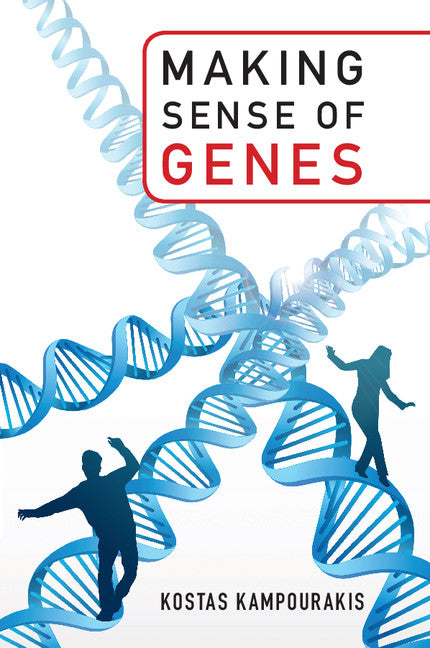Freshly Printed - allow 8 days lead
Couldn't load pickup availability
Making Sense of Genes
An accessible but rigorous introduction to genes for non-experts, explaining what genes are and what they can and cannot do.
Kostas Kampourakis (Author)
9781107567498, Cambridge University Press
Paperback / softback, published 30 March 2017
314 pages, 97 b/w illus. 10 tables
22.8 x 15.2 x 1.7 cm, 0.52 kg
'… an erudite and fascinating book that presents historical and contemporary accounts of the gene concept while explaining exactly what it is that genes can and cannot do. Kampourakis clearly knows his stuff. He is not satisfied to merely make the case that genes do not determine our traits; he does the hard work of explaining how the scientists who study DNA do their work, and what they have discovered about how genes are used in the development of phenotypes … Kampourakis fulfills his promise to make sense of genes.' David S. Moore, New Genetics and Society
What are genes? What do genes do? These seemingly simple questions are in fact challenging to answer accurately. As a result, there are widespread misunderstandings and over-simplistic answers, which lead to common conceptions widely portrayed in the media, such as the existence of a gene 'for' a particular characteristic or disease. In reality, the DNA we inherit interacts continuously with the environment and functions differently as we age. What our parents hand down to us is just the beginning of our life story. This comprehensive book analyses and explains the gene concept, combining philosophical, historical, psychological and educational perspectives with current research in genetics and genomics. It summarises what we currently know and do not know about genes and the potential impact of genetics on all our lives. Making Sense of Genes is an accessible but rigorous introduction to contemporary genetics concepts for non-experts, undergraduate students, teachers and healthcare professionals.
Acknowledgments
Prolegomena: genes, science and science fiction
1. Mendel and the origins of the 'gene' concept
2. The genes of classical genetics
3. The molecularization of genes
4. So, what are genes?
5. 'Genes for' (almost) everything
6. Are there 'genes for' characters?
7. Are there 'genes for' diseases?
8. So, what do genes do?
9. Genes are implicated in the development of characters
10. Genes account for variation in characters
11. Genomes are more than the sum of genes
12. Limitations in the study of genomes
Concluding remarks: how to think and talk about genes?
Further reading
References
Glossary.
Subject Areas: Genetic engineering [TCBG], Molecular biology [PSD], DNA & Genome [PSAK1], Genetics [non-medical PSAK], Biology, life sciences [PS], History of science [PDX], Philosophy of science [PDA], Medical genetics [MFN]


